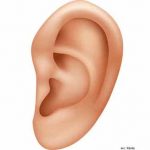A growth-accommodating implant for paediatric applications
16 February 2017
| Medical implants of fixed size cannot accommodate normal tissue growth in children and often require eventual replacement or—in some cases—removal, leading to repeated interventions, increased complication rates and worse outcomes. | Feins EN et al. |
| Implants that can correct anatomical deformities and accommodate tissue growth remain an unmet need. Here, we report the design and use of a growth-accommodating device for paediatric applications that consists of a biodegradable core and a tubular braided sleeve, with inversely related sleeve length and diameter. The biodegradable core constrains the diameter of the sleeve, and gradual core degradation following implantation enables sleeve and overall device elongation to accommodate tissue growth. By means of mathematical modelling and ex vivo experiments using harvested swine hearts, we demonstrate the predictability and tunability of the behaviour of the device for disease- and patient-specific needs. We also used the rat tibia and the piglet heart valve as two models of tissue growth to demonstrate that polymer degradation enables device expansion and growth accommodation in vivo. | Nature Biomedical Engineering volume 1, pages818–825 (2017)doi:10.1038/s41551-017-0142-5 |
Find NEWS and PUBLICATIONS here according to your interests or use the search box.









